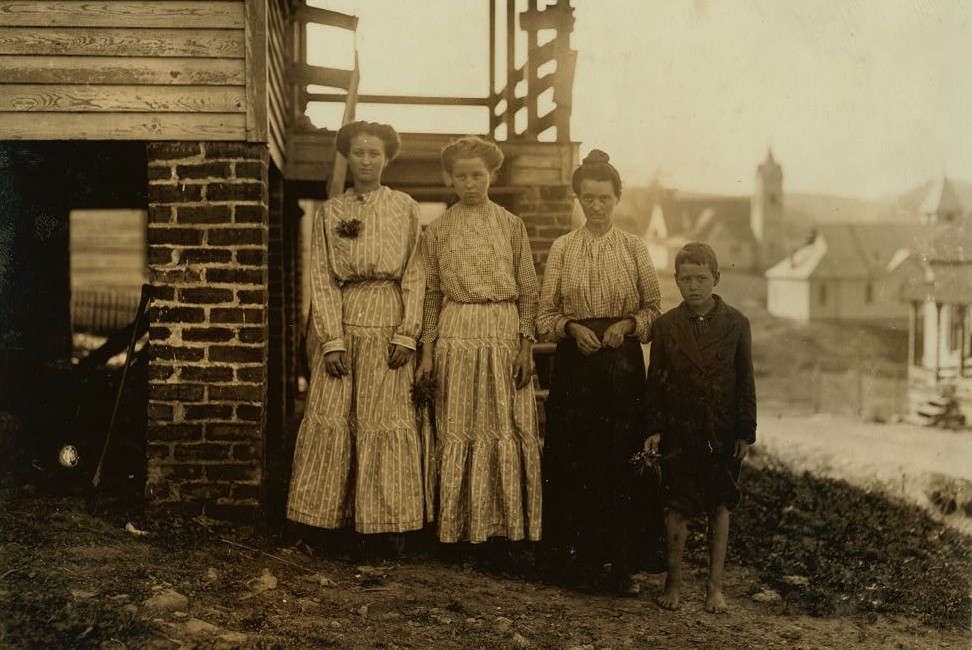According to Author/Historian D.Laurence Rogers, Paul Bunyan may have been based on a real person in Michigan. The lumber industry in Michigan was once a booming business. The white pine was like “green gold” and many people became millionaires. This also attracted a rowdy, rough element which could have included a character like Paul Bunyan who may have been murdered in Michigan.
The British, and later the Americans, used Michigan’s hardwoods to build merchant and war ships. The original white pines were over 200 years old, two hundred feet in height and five feet in diameter.
Logging, felling the tree Detoit Publishing ca. 1880s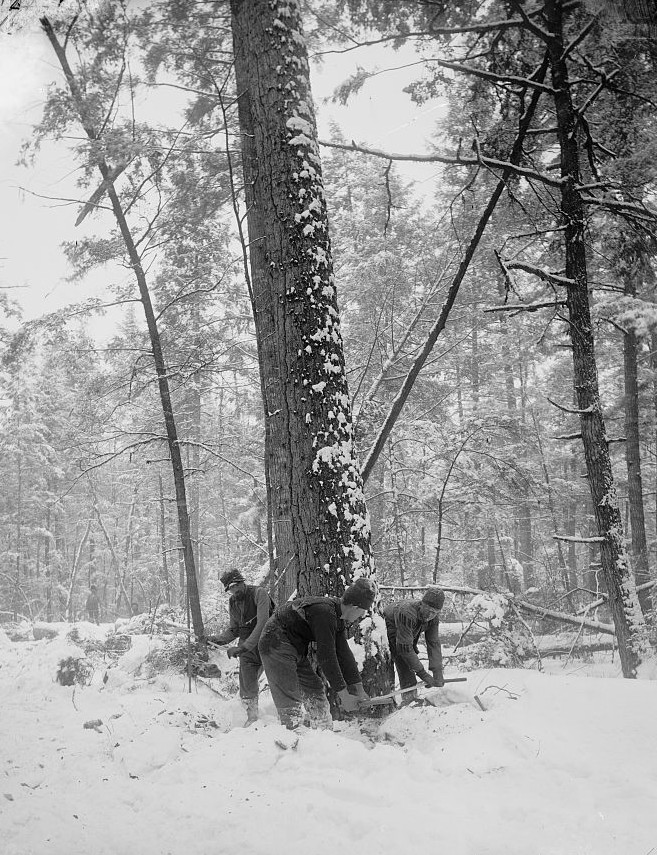
Logging, cutting lengths ca. 1880s Detroit Publishing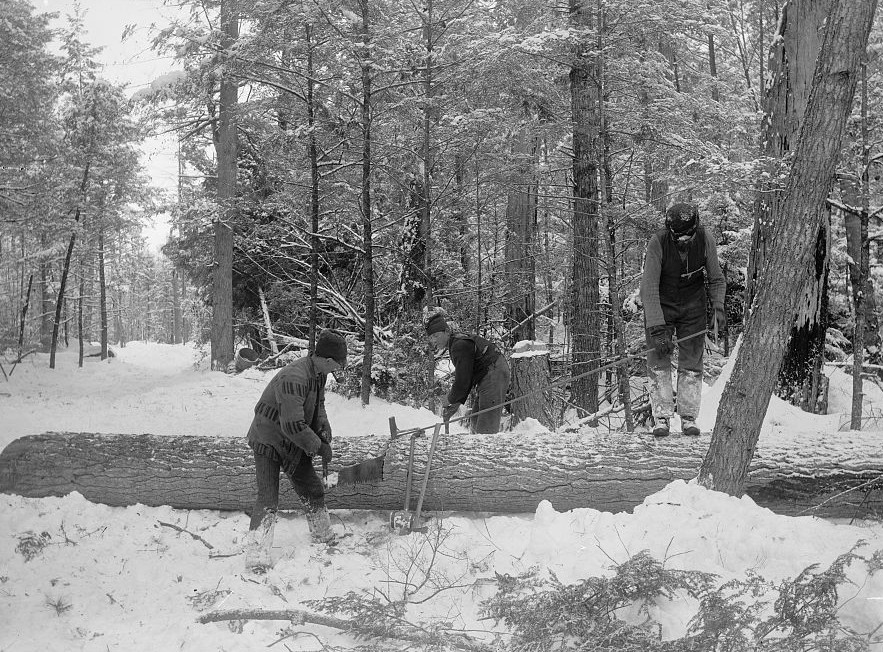
Logging in Michigan, the sled ca. 1880s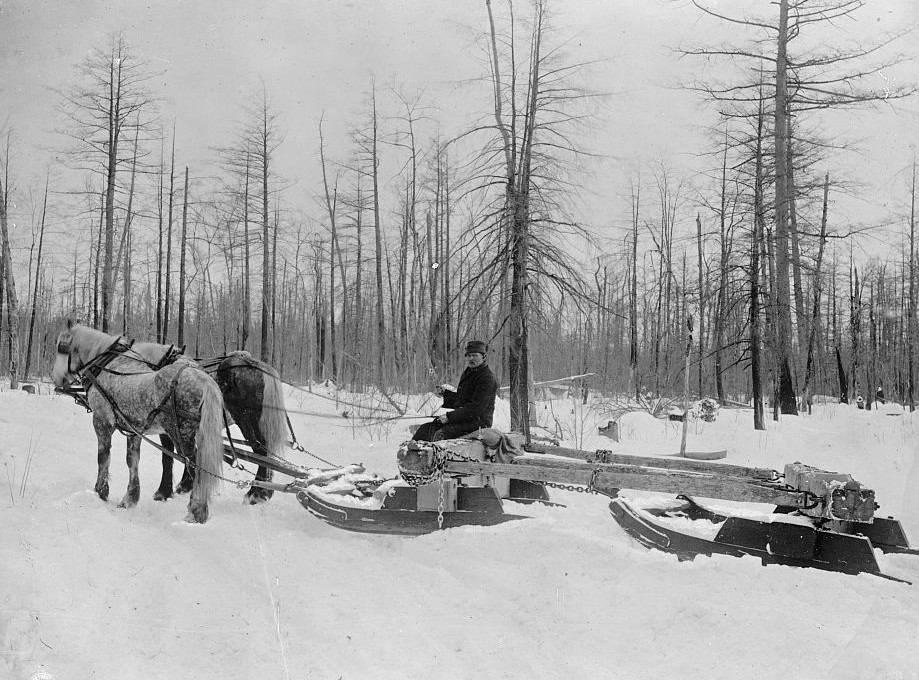
“Michigan’s pine became important as the supply of trees in the northeast was used. By 1880, Michigan was producing as much lumber as the next three states combined.”
“The first area where many mills were built was Saginaw. Six rivers converge to form the Saginaw River which empties into Saginaw Bay and then Lake Huron. The rivers are the Chippewa, Tittabawassee, Cass, Bad, Shiawassee and Flint. Rivers played a very important part for the loggers because the lumber had to be floated to the mills and then to market.”
“The logs were far too big and heavy to take from the woods by dragging, so the loggers made ice-covered roads, where the logs could be pulled on sleds. The loads were often extremely big and contests were held between rival camps to see which could stack a load the highest. The logs were taken to the banks of rivers, where they were piled twenty to thirty feet high, awaiting the spring thaw.”
The Loggers Michigan by ca. 1888 by Detroit Publishing Company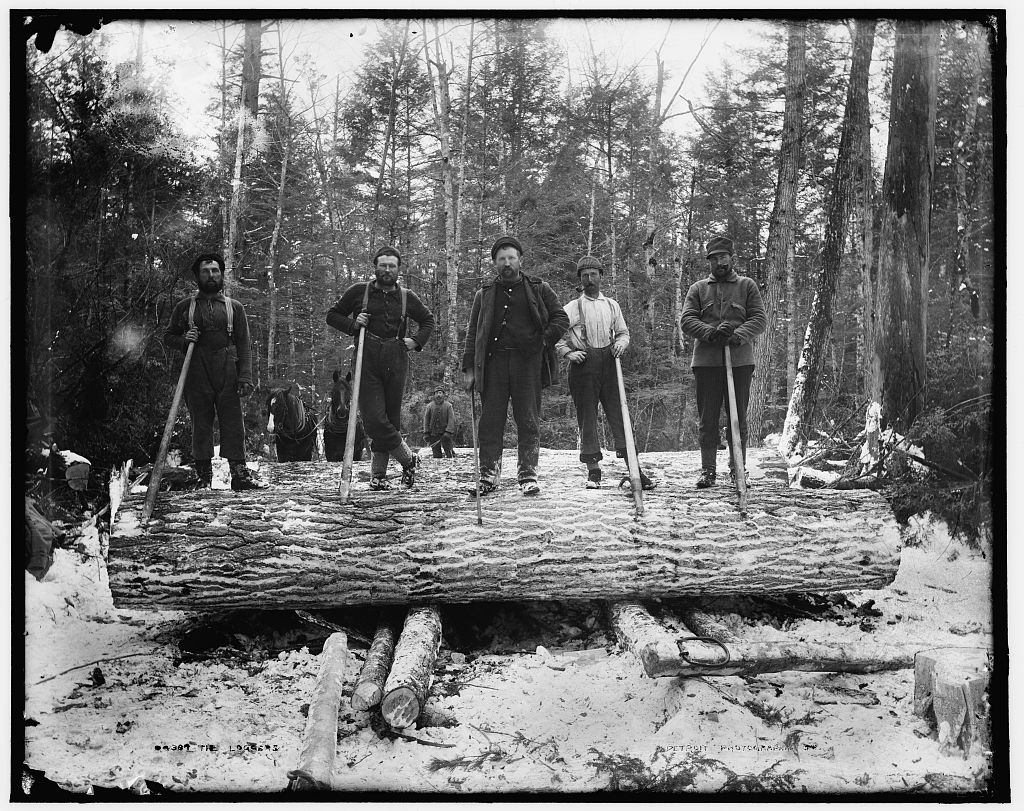
“The first group of people to set up lumbering operations were from New England, especially Maine and New York. The forests there were almost entirely cut, so the owners and experienced crews followed the work. Many felt that the huge forests of Michigan would last for many, many years, yet within a 20 year period, 1870 to 1890, most of the trees were cut.”
Lumbering camp in Michigan 1892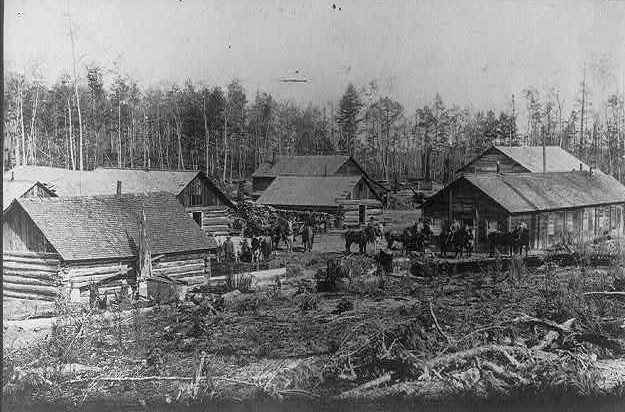
Group of 31 lumberjacks posed outside camp bldg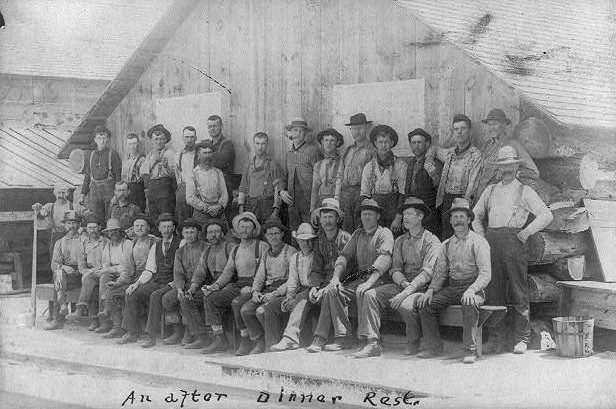
Logging a big load 1888 Detroit Publishing Company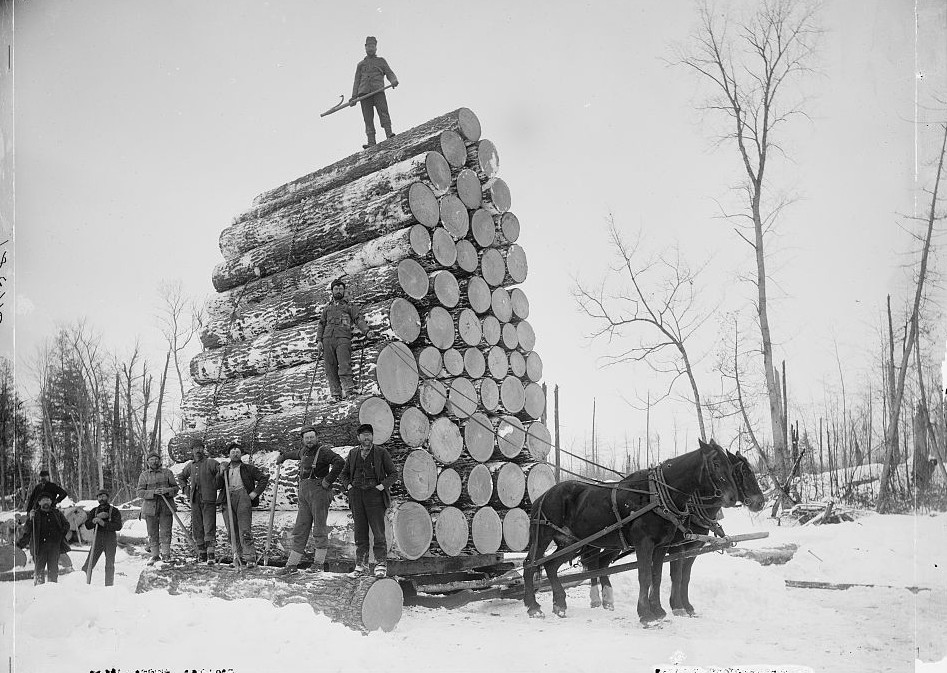
Logging in the pine forest, Horses and oxen pulling logs. Michigan 1900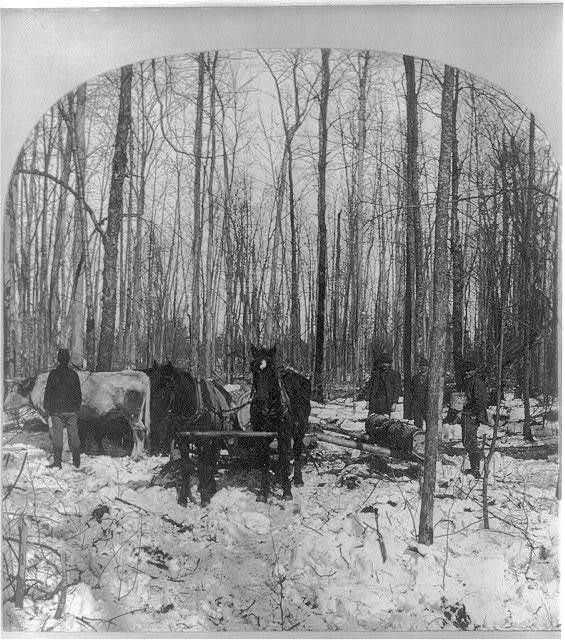
Logging train, Harbor Springs, Mich Detroit Publishing company, 1900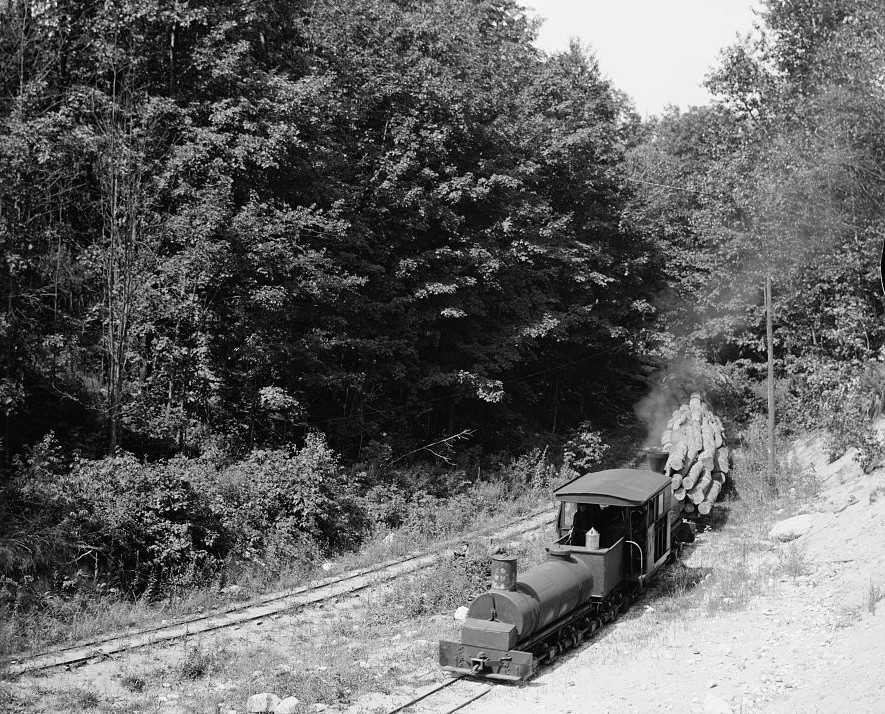
Excursion logging train, Harbor Springs, Mich. Detroit Publishing 1906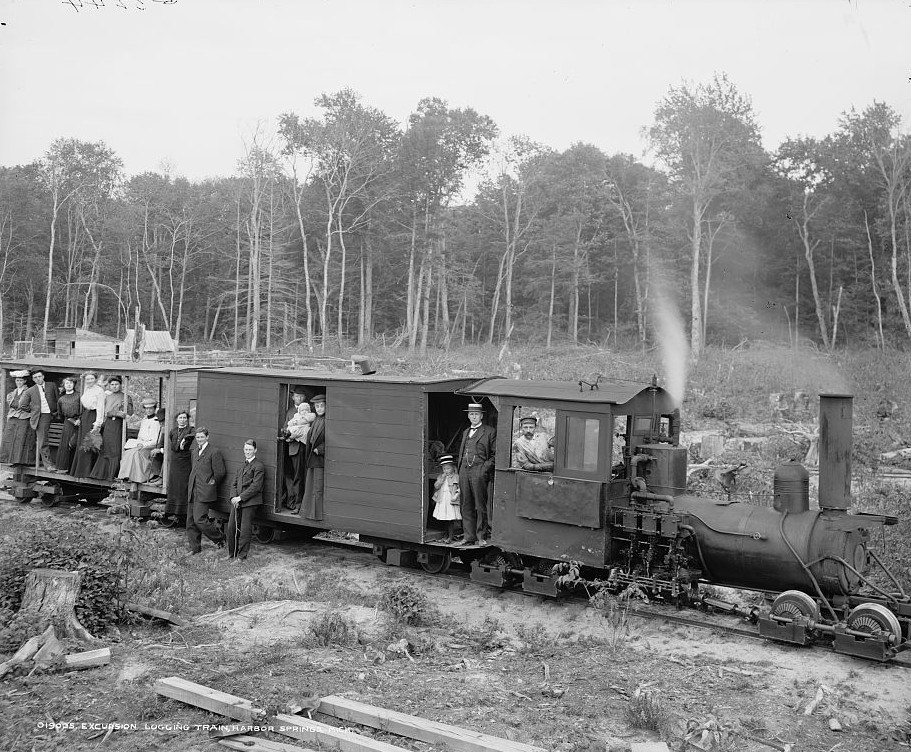
Topping Off 1892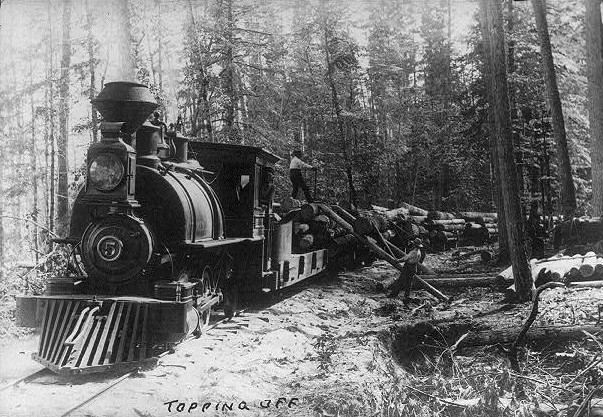
“When rivers melted, the logs were pushed into the swollen rivers and floated to the mills. At the mills, the logs were sorted in the boom area, each identified by a log mark on the end of the logs. The were then sorted in the boom area, each company’s logs together.”
Dead River saw mill, Marquette, Mich. Detroit Publishing 1906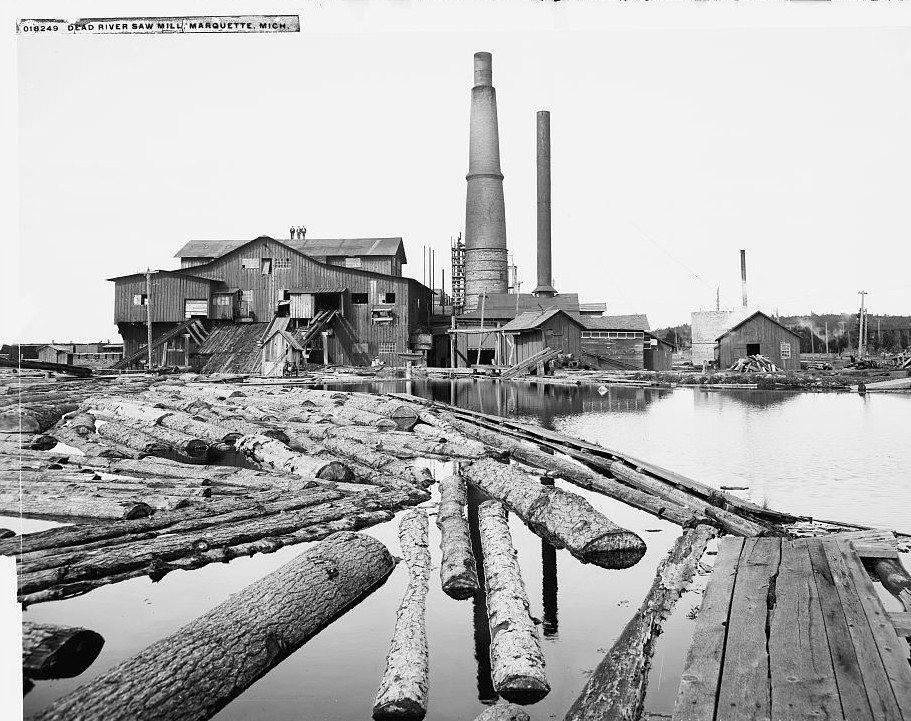
Modern methods in woods at Cadillac ca. 1920 Detroit Publishing Co.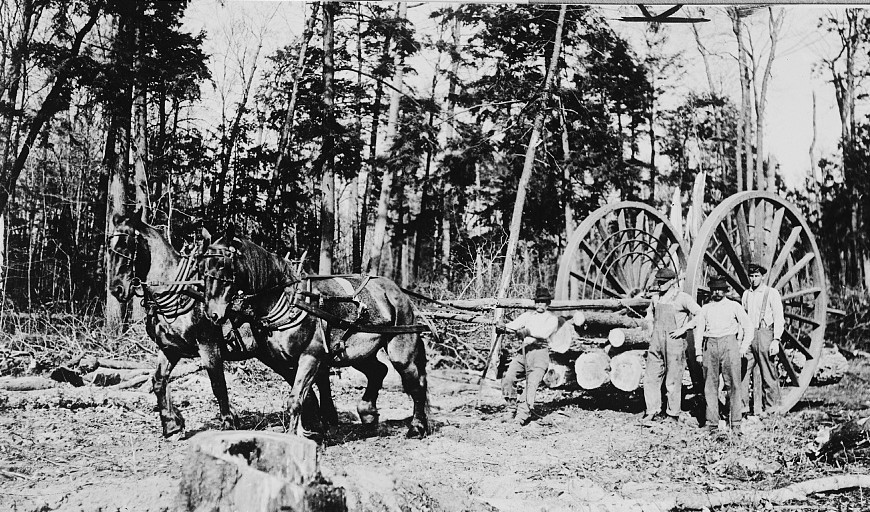
Lumber barge, inland route, Cheboygan-Petoskey, Mich. Detroit Publishing ca. 1920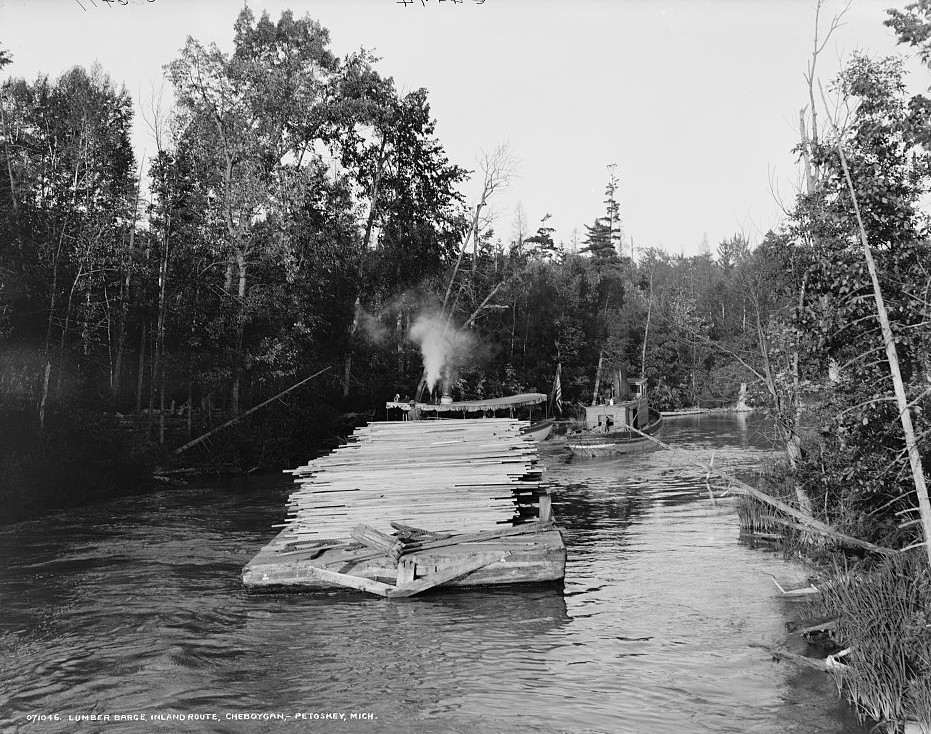
Among the lumberjacks, Northern Michigan Detroit publishing ca. 1900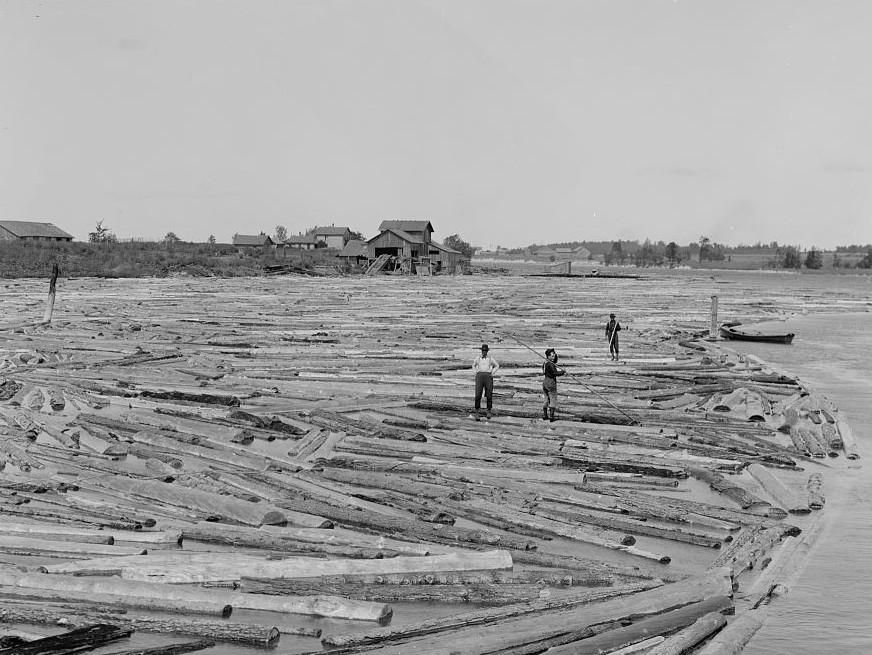
Logging on the river, Menominee, Mich. Detroit Publishing ca. 1898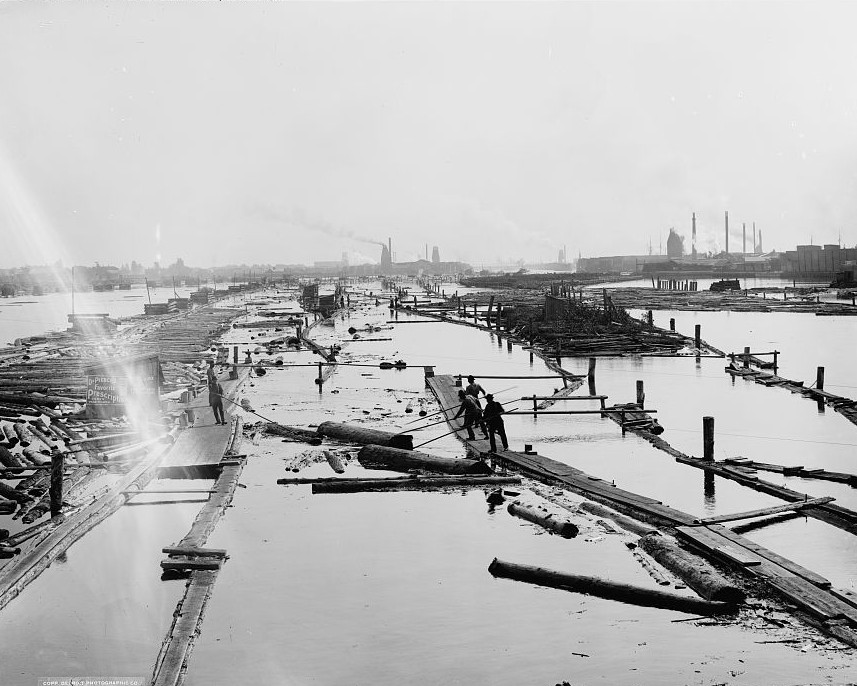
Menominee, Mich., logging on the river Detroit publishing ca. 1898
Loading lumber on steamer at lumberyards, Menominee, Mich Detroit Publishing c.a 1898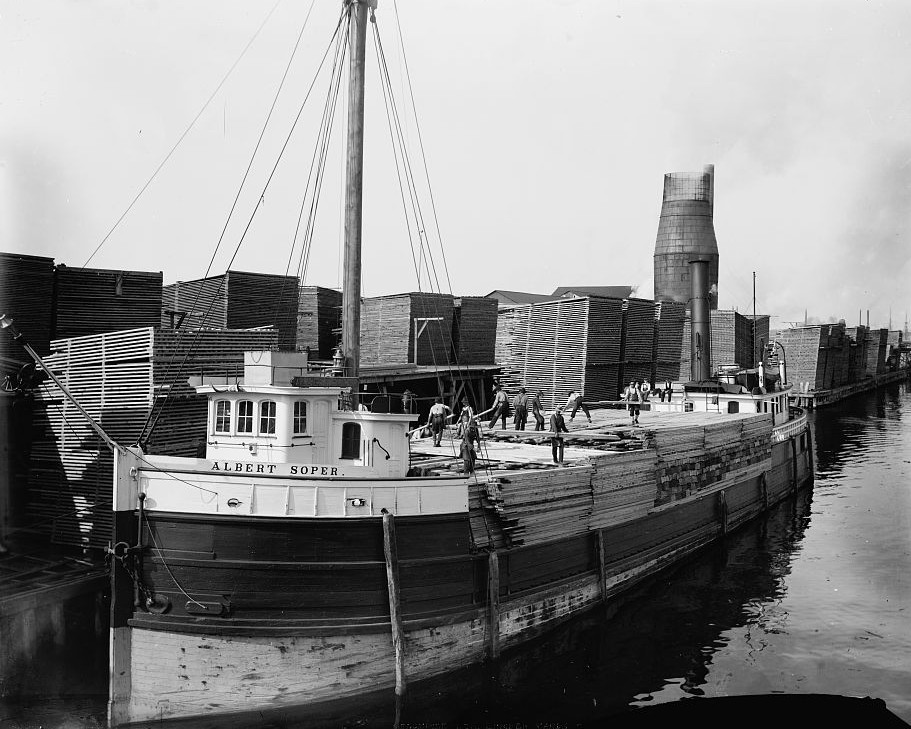
SOURCES
- A Brief history of lumbering in Michigan
- Library of Congress
Paul Bunyan:How a Terrible Timber Feller Became a Legend



